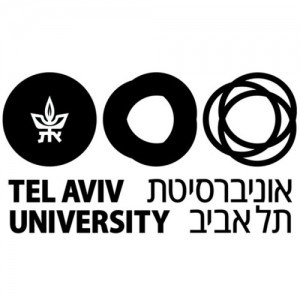Photos of university / #telavivuni
The study of the Internet and Cyberculture—representing the social, economic, and cultural facades of the digital revolution and the rise of the Network Society—has become a fertile and dynamic academic field. Scholars in a variety of fields study the tools, rhetoric, and daily practices produced by digital technology. Just as the invention of print in the 15th century not only changed fundamentally the dissemination of knowledge but also influenced all areas of life, so does the internet--as an all-encompassing communication system, an archive of accumulating and accessible knowledge, and a medium of human relations—impact the way we communicate, interact, work, play, write, learn, create, and produce meaning.
This track exposes the student to a variety of perspectives on digital culture and its meanings. It contextualizes the digital age in history, emphasizing the continuities between the dramatic appearance of digital technology and previous technological revolutions. It uses a range of academic methods—taken from history, philosophy, sociology, and cultural studies—to analyze the “digital condition” and the new human space produced by the Network Society.
- Techno-utopia: Introduction to the Social and Cultural History of the Internet
- Digital Discourse: New Media Language and Dynamics
- Cyber-Knowledge: Information and Deception on the World Wide Web (Not offered in 2014-15)
- Theories in Communication and Digital Media
- Two electives
- Five elective courses
- Seminar
Requirements
- Online application
- Official high school diploma and transcript. Applicants in their final year of high school may submit a partial transcript. Their admission process will be complete once the final transcript and diploma are received.
- Results of the Scholastic Aptitude Test (SAT) or American College Test (ACT). These are only required for applicants graduating from a U.S. high school system, whether in the U.S. or abroad. TAU's SAT code is 0810, and our ACT code is 5517. Applicants who attended non-U.S. high schools should submit the results of analogous nationally administered tests.
- Two letters of recommendation from principal, teacher, guidance counselor, or others who are able to comment on the applicant’s academic abilities. Please ask your referees to submit their evaluations via email or through our online form.
- One personal essay (300-500 words)
- TOEFL or equivalent proof of English language proficiency - This is only required of graduates of high schools in which English was not the primary language of instruction. TAU's TOEFL code is 7704.
- A mandatory Health Declaration signed by the applicant and an additional witness.
- A signed medical form with a physician's approval.
Want to improve your English level for admission?
Prepare for the program requirements with English Online by the British Council.
- ✔️ Flexible study schedule
- ✔️ Experienced teachers
- ✔️ Certificate upon completion
📘 Recommended for students with an IELTS level of 6.0 or below.
Scholarships
- The Jack Kent Cooke Foundation
Accommodation in dormitories
- $4,800 for the standard 8-month academic year
- $3,000 for the spring semester.
Students who pursue courses of a longer duration (such as English Literature courses or courses taught in Hebrew) will be charged additional fees for their extended stay in the dorms.
Important notes
- A non-refundable $100 application fee is not included above.
- Accepted students will be asked to pay a confirmation fee to guarantee their spot in the program.
- Trips, Student Activities, Facility Fees and Health Insurance are all included in the tuition fees quoted above.
- Study of the Hebrew language (Ulpan) is highly recommended and involves an additional fee.
- There is a replacement charge of $10 for lost student ID card, medical insurance card, or room keys.
Tuition includes excursions, activities, facility fees, and health insurance.

